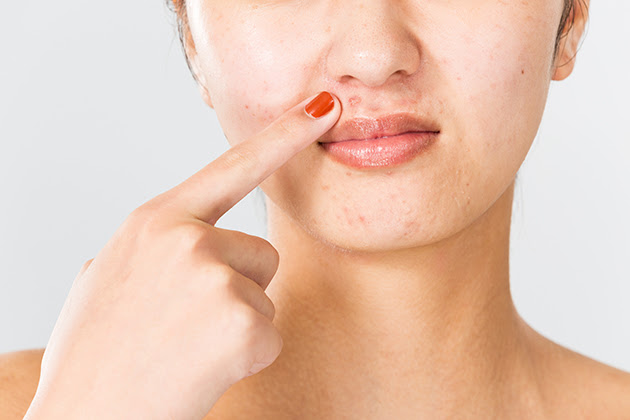BEST 5 skin problems
01 Multivitamin
02 GLA
03 Probiotics
04 Omega-3
05 Protein

Skin diseases are influenced by the foods we eat every day
When I was in medical school, I was taught that most skin diseases are not food-related. However, recent studies on nutrition and skin diseases suggest that many skin diseases are influenced by the food we eat every day. For example, if a person with atopic or seborrheic dermatitis consumes too much vegetable oil, which is high in saturated fat, soybean oil, or omega-6 fatty acids, such as corn oil, it can increase the production of inflammatory mediators in the body, which can worsen symptoms. Acne is a condition that has earned the nickname "skin diabetes" and increases inflammation and sugar tolerance in the skin. High blood sugar leads to poor immune function and an increased inflammatory response. Simple sugars, such as sugar, or refined carbs, such as flour, can make acne worse.
3 Musketeers of nutritional supplements for skin problems!
01
The first thing you should eat
Multivitamins
If you have a skin problem
The first multivitamin you should take
If you have skin problems such as acne, atopy, seborrheic dermatitis, or pimples, the first thing you should do is take a multivitamin. Multivitamins contain vitamin A, B vitamins, vitamin D, biotin, zinc, and many other ingredients that help control skin problems.
Vitamins are especially important...
Vitamin A helps prevent the skin from drying out. Zinc is so important for skin health that it has been nicknamed the "skin mineral." It's also good for acne as it's an important ingredient for its antimicrobial action and for controlling sebum within the skin. Chromium is a glucose tolerance factor, which helps carb lovers with increased skin inflammation. Deficiency of vitamin B6, vitamin B12, biotin, etc., also exacerbates dermatitis. Vitamin B6 is a nutrient that affects hormone metabolism and can help reduce acne caused by PMS.
02
anti-inflammatory drugs that help with atopy,
GLA
The most helpful anti-inflammatory for atopy, GLA
Many people think of GLA as a supplement for menopausal women. Nope. Gamma-linolenic acid is an anti-inflammatory compound that powerfully reduces inflammation in our body. It is the most helpful ingredient, especially if you have atopy. Gamma-linolenic acid is difficult to get from food, so it is mostly taken in the form of nutritional supplements. It is abundant in borage oil or evening primrose seed oil.
In the case of atopic or seborrheic dermatitis, it is recommended to take at least 200 mg of gamma-linolenic acid to see its effects.
03
For intestinal beneficial bacteria,
Probiotics
Helping to proliferate beneficial bacteria in the gut can also help improve acne and other skin inflammations. Generally, it is recommended to take about 1 capsule per 10 billion on an empty stomach, but if the symptoms are severe, it is helpful to increase the dose to about 2~3 capsules.
04
It is good to eat with gamma-linolenic acid,
Omega-3
When taking GLA, it is recommended to take omega-3s as well as possible. This is because omega-3s themselves have a role in reducing inflammation, but when taken together, GLA and omega-3s have more potent anti-inflammatory properties. Many skin conditions are exacerbated by dryness, so it's important to hydrate and consume good oils such as GLA and omega-3s.
05
for the formation of collagen in the dermis layer,
protein
For skin elasticity and whitening, you need to eat enough protein. In order for the skin to be elastic, the dermis layer under the skin must be thick, and protein is an important component for the formation of collagen in the dermis layer. Of particular importance are amino acids such as proline, lysine, glycine, etc. In addition, amino acids such as cysteine help prevent pigmentation in the skin. Cysteine is lacking in plant proteins such as tofu and soybeans and is high in animal proteins. In addition, a high-protein diet can also help reduce the production of testosterone, a male hormone that stimulates the sebaceous glands, which can help improve acne symptoms.




